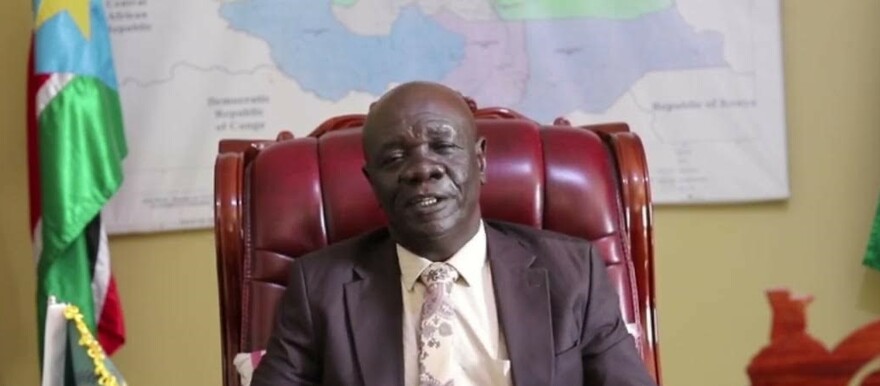South Sudan’s Ministry of Tourism has announced a strategy aimed at boosting economic growth through investments, following a recent economic conference in Juba.
In an exclusive interview with Radio Tamazuj, Minister of Wildlife, Conservation and Tourism Rizik Zachariah elaborated on the strategy, which includes attracting investors, developing national parks, and reintroducing wildlife to the region.
Zachariah shed light on the rationale behind the strategy and its implications following the economic conference in Juba. He explained, “The recent economic conference in Juba was initiated in response to the country’s ongoing economic instability and decline. Various ministries and institutions were tasked with developing proposals to improve the economy and address existing challenges.”
The Ministry of Tourism actively contributed by presenting a comprehensive proposal detailing its plans to develop the tourism sector, emphasizing the unique strengths of South Sudan in this domain and outlining strategies to overcome challenges.
Facing financial resource constraints and a heavy reliance on revenue from crude oil sales, Minister Zachariah addressed the challenge of leveraging the country’s natural resources.
He stated, “South Sudan boasts an exceptional wealth of natural resources, setting it apart from many other countries. The nation possesses abundant natural reserves, cultural and heritage sites, captivating natural attractions, and a rich diversity of wildlife. Notably, South Sudan is home to the world’s largest wildlife migration, with over 4 million animals participating in seasonal migrations.”
Zachariah also outlined plans to develop national parks across South Sudan, saying, “South Sudan is home to several national parks, including Nimule. The ministry has plans to develop these parks to boost tourism and generate revenue for the country. Wildlife management in the country categorizes areas into two groups, with game reserves being the broader classification. South Sudan currently boasts six substantial game reserves and twelve parks, totaling eighteen protected areas.”
“To further the development of these sites, essential infrastructure is required, including administrative headquarters and environmentally friendly roads. Notably, tarmac roads are avoided within the parks to preserve the natural habitats of the animals,” he said.
The minister further said they also plan to establish eco lodges to enhance visitor accommodations and improve park accessibility.
“Ensuring security and protection within these areas is a top priority, as several of the country’s largest parks face security challenges due to the presence of firearms among civilians. Steps are being taken to establish a deterrent force to protect the parks from poachers,” Zachariah revealed.
Wildlife, much like the South Sudanese people, were displaced due to decades of conflict. As peace returned to South Sudan following the signing of the Comprehensive Peace Agreement in 2005 and subsequent peace accords after 2013, amid renewed internal conflicts, wildlife have begun to return to South Sudan in a natural and instinctive seasonal migration pattern.
Minister Zachariah assured that concrete plans are in place to repatriate formerly displaced wildlife, explaining, “During the war, some animals migrated to neighbouring countries like Uganda. The ministry is actively coordinating with authorities in these countries to facilitate the safe return of these animals.”
Emphasizing that the current challenges are temporary, Minister Zachariah underscored the untapped potential of South Sudan, particularly in the fields of tourism, mining, agriculture, and animal resources. He urged the prioritization and investment in these sectors to drive the country’s development forward.




